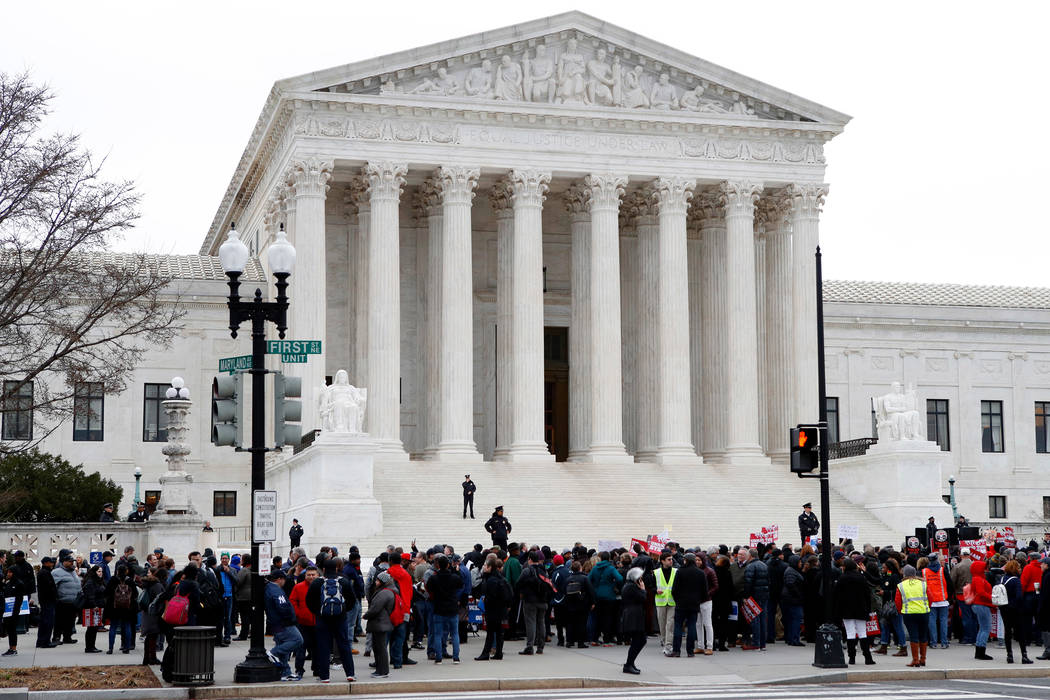EDITORIAL: Go 5 mph over the speed limit and lose your car?
The Supreme Court on Wednesday signaled a willingness to rein in the constitutionally dubious law enforcement tactic known as civil forfeiture. It’s about time.
The justices heard a case from Indiana in which police seized a $42,000 Land Rover as punishment for a small-time drug offense. The defendant, Tyson Timbs, argued the action violated the Eighth Amendment’s prohibition on “excessive fines,” pointing out the vehicle was worth more than 30 times the fines he actually paid. Indiana maintained that clause in the Bill of Rights applied only to the federal government and not the states.
The Hoosier State’s highest court agreed — but didn’t appear to have many allies during this week’s arguments.
“Here we are in 2018 still litigating incorporation of the Bill of Rights,” Justice Neal Gorsuch told Thomas M. Fischer, the Indiana solicitor general arguing the state’s case. “Really? Come on, general.”
The 14th Amendment has long been interpreted to hold that the government restrictions articulated in the Bill of Rights also apply to the states. It would seem self-evident that the excessive fines clause would be treated similarly, but the Supreme Court has never specifically addressed that notion as it pertains to the Eighth Amendment.
The high court has previously ruled that the Eighth Amendment applies to federal forfeiture efforts. The Indiana case gives the justices the opportunity to explicitly address the matter as it applies to the states and to strengthen protections against potential abuses — such as confiscating a Range Rover over a small drug deal.
The ramifications of sanctioning the status quo are profound. When Justice Stephen Breyer queried whether a state could impose a statue allowing the police to take vehicles from those going 5 mph over the speed limit, Mr. Fischer “said their would be no constitutional problem” with such a law, The New York Times reported.
Who with a straight face could argue that using forfeiture laws to seize an expensive luxury vehicle as punishment for a minor speeding offense doesn’t constitute an “excessive fine”? In Mr. Fischer’s world, there is apparently no limit to the fines states may impose on their citizens.
Wednesday’s arguments portend that the justices will make clear the Eighth Amendment’s ban on excessive fines applies to the states. But let’s hope the court also takes the opportunity to go beyond a narrow ruling and to make clear that civil forfeiture amounts to fine on the property owner and that prosecutors and local and state law enforcement agencies have a constitutional obligation to ensure such actions are proportionate to the offense.




























